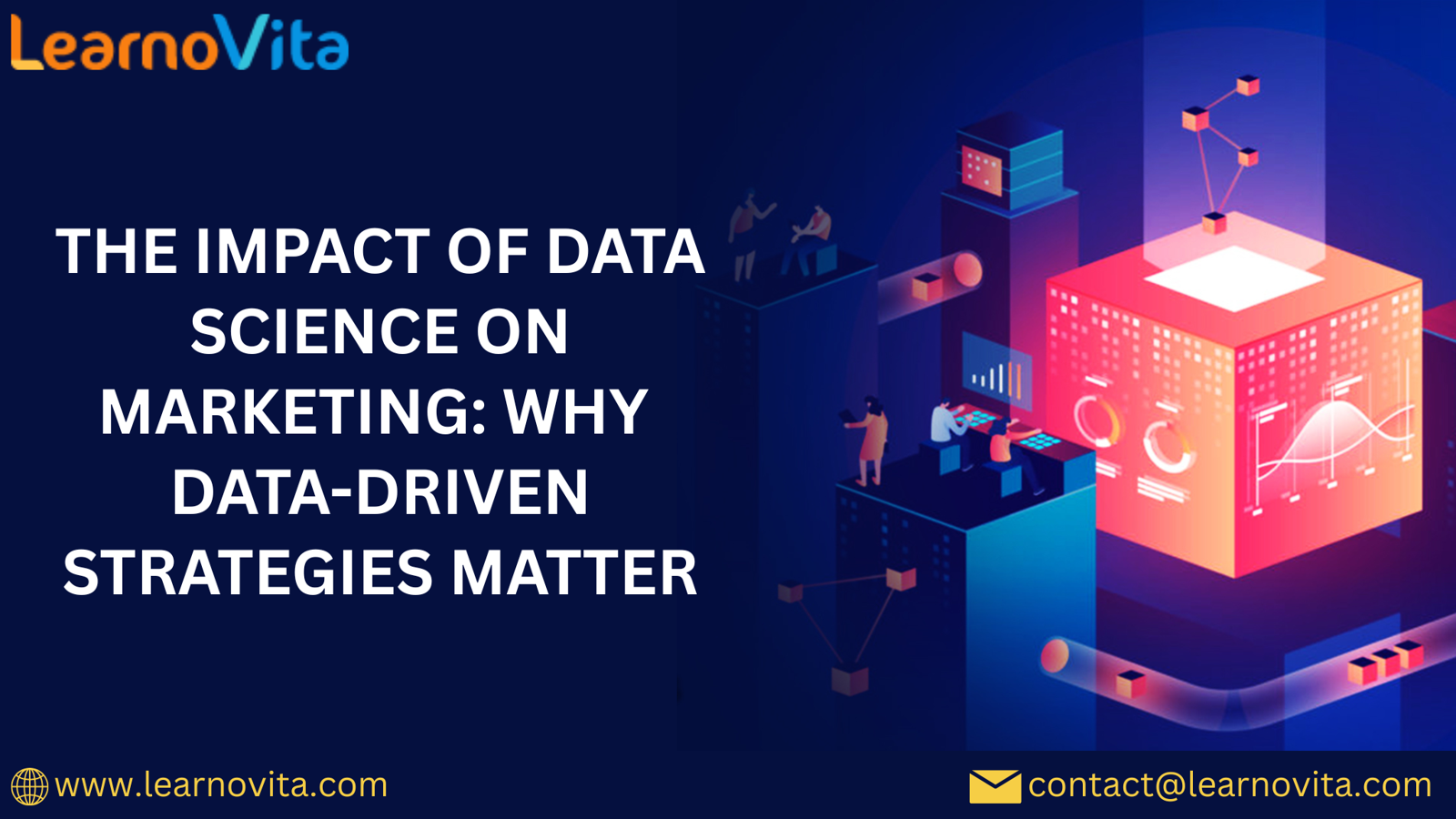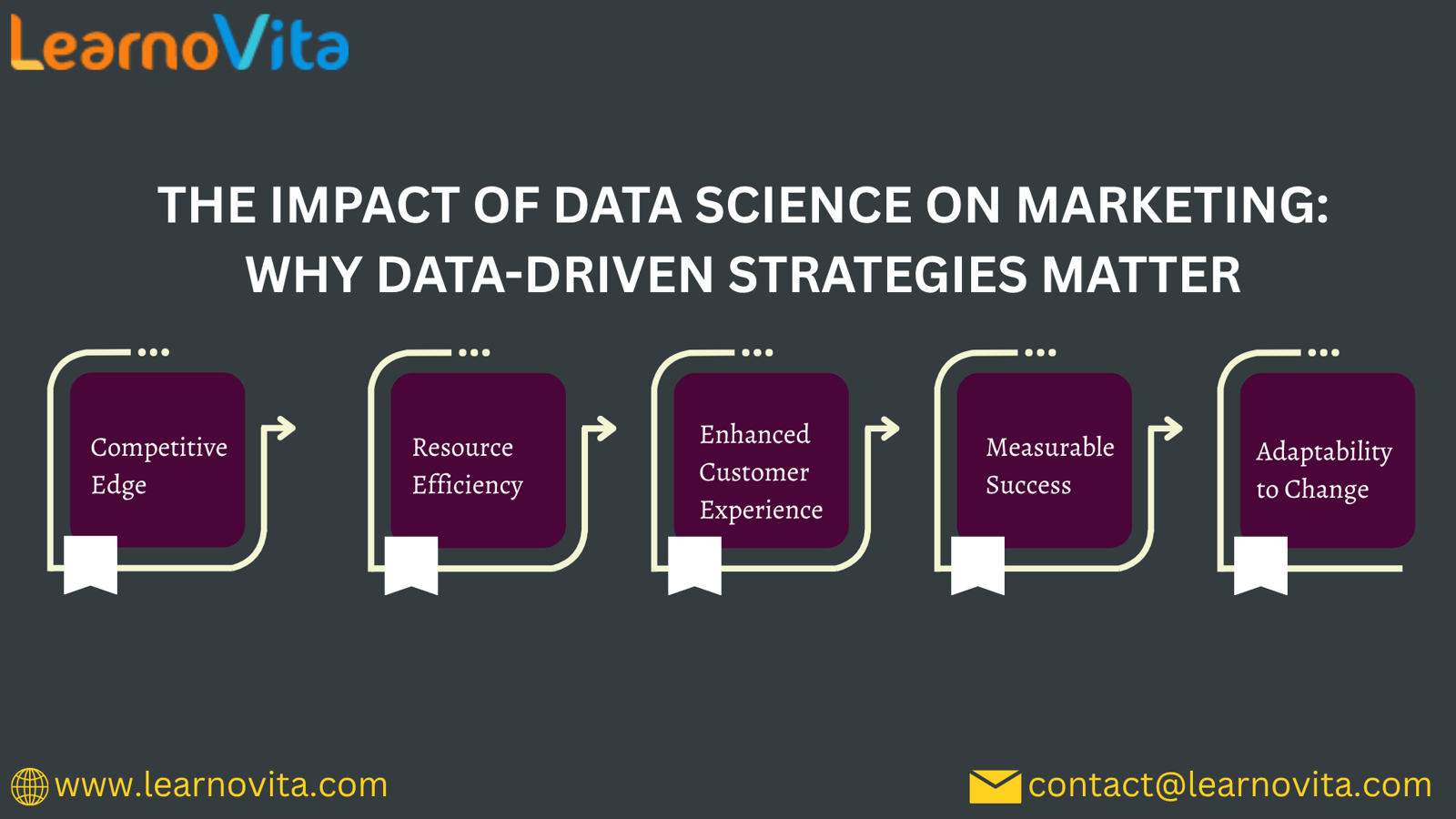Revolutionizing Marketing with Data Science: The Significance of Data-Driven Approaches
- Get link
- X
- Other Apps

The Evolution of Marketing
Historically, marketing efforts relied heavily on intuition, creativity, and broad demographics to reach potential customers. However, as the digital landscape has expanded, so too has the volume of data available. Today, businesses have access to an unprecedented amount of information about consumer behavior, preferences, and trends. Data science harnesses this data to provide actionable insights that can significantly enhance marketing strategies.
Key Areas of Revolution
-
Deep Customer Insights
- Data science allows marketers to dive deep into customer data, uncovering valuable insights about buying behaviors, preferences, and pain points. By analyzing this data, businesses can create detailed customer personas, enabling more targeted and effective marketing campaigns.
-
Precision Targeting and Segmentation
- With advanced analytics, marketers can segment their audiences with remarkable precision. Instead of generic targeting, data science enables the identification of niche segments, allowing for tailored messaging that resonates with specific groups. This results in higher engagement and conversion rates.
-
Predictive Analytics for Strategic Planning
- Predictive analytics leverages historical data to forecast future outcomes. Marketers can use these insights to anticipate customer needs, optimize inventory, and plan effective campaigns. This proactive approach helps businesses stay ahead of market trends and customer demands.
-
Personalization at Scale
- Today’s consumers expect personalized experiences. Data science facilitates hyper-personalization by analyzing individual behaviors and preferences. This enables businesses to deliver customized content, recommendations, and offers, enhancing customer satisfaction and loyalty.
-
Real-Time Decision Making
- The ability to access and analyze data in real-time empowers marketers to make informed decisions quickly. This agility allows for rapid adjustments to campaigns based on performance metrics, ensuring that marketing efforts are always aligned with current consumer behavior.
-
Efficient Resource Allocation
- Data-driven insights help businesses allocate marketing budgets more efficiently. By understanding which channels and strategies yield the best results, companies can focus their resources on high-impact initiatives, maximizing return on investment (ROI).
-
Measuring Success Accurately
- Data science provides the tools to measure and analyze marketing performance accurately. Marketers can track key performance indicators (KPIs) and metrics, ensure accountability and helping to refine future strategies based on concrete evidence.

The Importance of Data-Driven Approaches
-
Maintaining a Competitive Edge
- In a crowded marketplace, organizations that leverage data science gain a significant advantage. Data-driven strategies enable companies to make informed decisions, anticipate market shifts, and outperform competitors who rely on traditional methods.
-
Enhancing Customer Experience
- Understanding customer preferences and behaviors leads to improved experiences. By delivering relevant and timely content, businesses can build stronger relationships with their customers, fostering loyalty and retention.
-
Adapting to Market Changes
- The market is constantly evolving, and data-driven marketing allows for rapid adaptation. Businesses can respond to changing consumer needs and preferences, ensuring that their strategies remain effective and relevant.
-
Driving Innovation
- Data science encourages a culture of experimentation and innovation. By analyzing data, marketers can identify new opportunities, test new ideas, and refine their approaches, driving continuous improvement in marketing efforts.
-
Building a Data-Centric Culture
- Adopting data-driven strategies fosters a culture of data literacy within organizations. This empowers teams to make decisions based on evidence rather than assumptions, leading to more effective and strategic marketing initiatives.
Conclusion
The integration of data science into marketing is revolutionizing how businesses engage with their customers and approach their strategies. By embracing data-driven approaches, organizations can gain deeper insights, optimize their efforts, and ultimately drive growth.
As the marketing landscape continues to evolve, those who invest in data science will not only stay relevant but will also lead the way in innovation and customer engagement. In a world where data is key, leveraging its power is essential for any business looking to thrive in the modern marketplace.
- Get link
- X
- Other Apps

Comments
Post a Comment